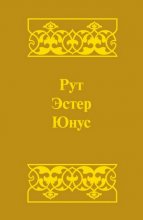
According to the 2010 census of Russia, there are 485,705 speakers of Dargi. There are a number of Dargi dialects, with the literary dialect being taught in most schools in traditionally Dargi regions. Books, newspapers, magazines, and a regional theater all use this literary dialect, so it was chosen as the language of the Bible translation project.
Previously, IBT published the Gospel of Mark (2002, 2007), the Gospel of Luke (2010), the Gospel of Matthew (2013), and a collection of Gospel Parables (2017) in Dargi. For the translation of Ruth, Esther, and Jonah, a new translator joined the project.
Ruth, Esther, and Jonah, each of which concerns a different period of Jewish history, are the first Old Testament books to be translated into Dargi. These books were not chosen by accident. They are short and tell about characters who are already familiar to Muslim audiences. The story of Jonah, for example, is in the Koran, and Ruth is an ancestor of King David, who is well-known as Dawud in Islam.
This publication contains black and white illustrations as well as an appendix with maps of the places mentioned in the narratives. Audio recordings of all three books were developed in concert with the text publication. These recordings are available online in the audio section of the IBT website. PDFs of the texts are available in the e-books section.
The translation process of both the Old and New Testaments continues in the care of a talented, professional team of experienced language and Bible scholars. The Four Gospels and the Proverbs of Solomon are currently being prepared for publication.

Share: